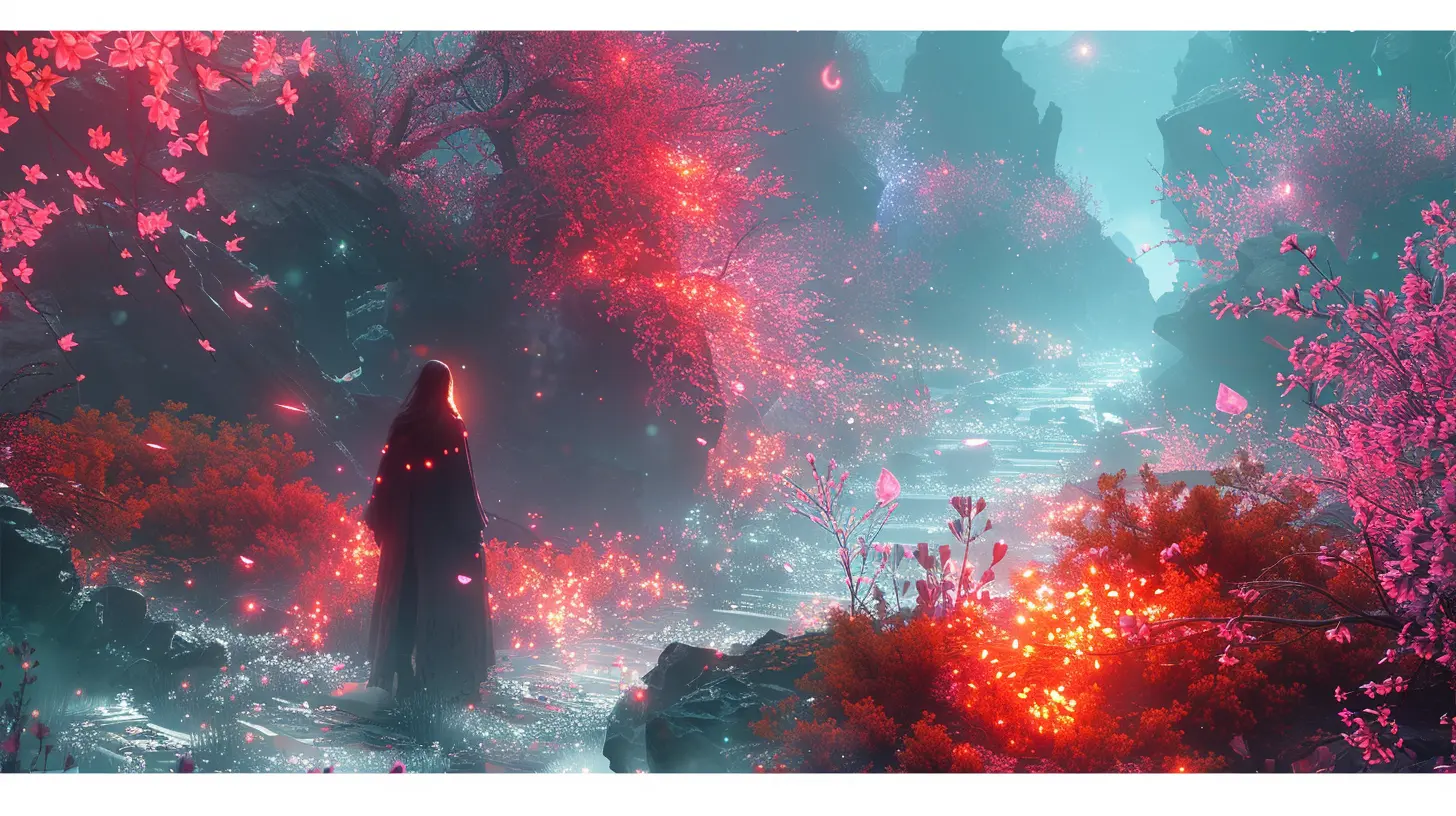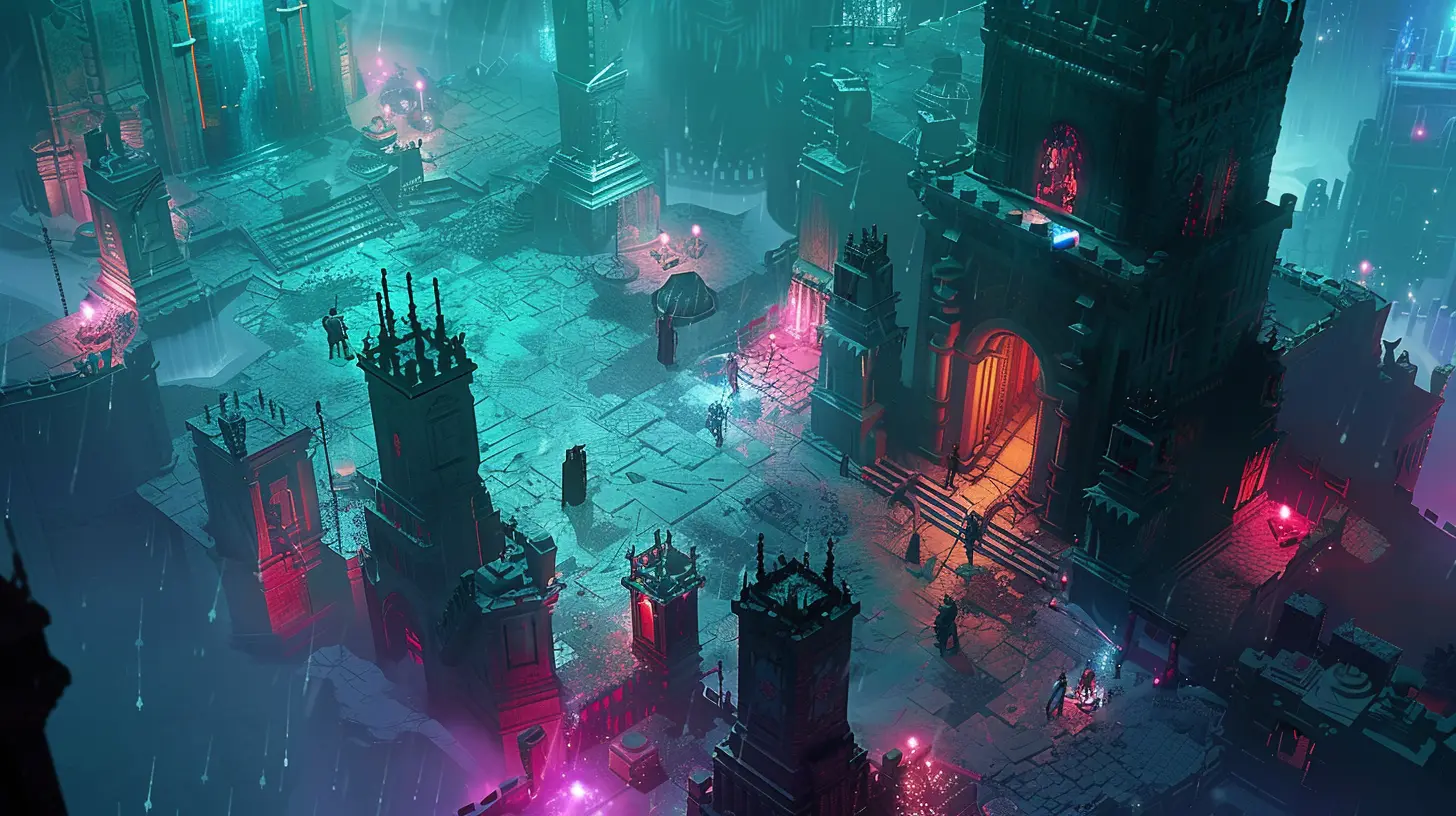How AI Behaviors Shape Game Difficulty and Player Strategy
24 August 2025
Ever played a game where the enemies just knew what you were about to do? You dodge left, and boom—they’re right there waiting. That’s not magic. That’s AI—Artificial Intelligence—working behind the scenes. And believe me, it’s not just about smarter bad guys. AI shapes everything from how tough a game feels to the way you play it.
In this post, we're diving deep into how AI behaviors impact game difficulty and influence your in-game strategies. Buckle up! Whether you’re a casual gamer or a hardcore strategist, this is going to be a wild ride through enemy minds and clever coding.
What Is AI in Games, Really?
Alright, let’s break it down in simple terms. AI in games isn’t some Skynet-style intelligence plotting your doom (well…unless you're playing a horror game). Game AI is a set of programmed behaviors that determine how non-player characters (NPCs) and game systems react.Think of it like this: AI is to games what the brains are to people. It’s what tells a sneaky enemy to hide behind cover or a boss to unleash a massive attack when you’re low on health.
And here's where it gets spicy—AI isn’t just about enemies. It's in your teammates, the shopkeeper, the wildlife, and even how traffic moves in open-world games.
How AI Determines Game Difficulty
Ever noticed how one game feels like a walk in the park while another absolutely wrecks you from the first level? That’s AI twisting the difficulty dials.1. Static AI vs Dynamic AI
Let’s talk flavors of AI. Most games operate on either static AI (fixed behavior) or dynamic AI (adaptive behavior).- Static AI: Think old-school Mario. Enemies patrol or attack in predictable patterns. Not very bright, but that’s part of the charm.
- Dynamic AI: Now we’re talking games like Alien: Isolation or Left 4 Dead. Here, the AI learns from you, adapts, and makes sure you stay on your toes.
Dynamic AI keeps the game challenging by analyzing your playstyle. Are you always hiding? The AI might flush you out. Spamming the same move? The enemies adapt.
So yeah, it's a bit like playing chess—except your opponent has a cheat sheet.
2. Difficulty Modes Are More Than Just Stats
When you pick "Hard" mode, it’s not just about enemies having more health. Smart AI behavior kicks in.- On Easy, enemies might ignore opportunities to punish your mistakes.
- On Hard, they’ll time attacks perfectly, flank you, and even bait you into traps.
Some games, like DOOM Eternal, crank up AI aggression and coordination as you increase difficulty. Suddenly, the AI isn’t just stronger—it’s smarter.
The Rise of Procedural AI
Procedural AI is a fancy term that basically means the game designs some of itself on the fly using algorithms. This includes enemy placement, environment layouts, and even quest outcomes.In games like No Man’s Sky or Minecraft, procedural systems shape the world. But in rogue-likes like Hades or Dead Cells, they affect how enemies behave each run. That unpredictability forces you to rethink your usual strategy every time.
It's like assembling a puzzle where the pieces change shape whenever you look away.
AI and Player Strategy: A Constant Tug of War
Every decision you make—every dodge, every attack—AI is watching. (Creepy, right?) And it reacts accordingly.Let’s break this down.
1. Encouraging Strategic Depth
Challenging AI forces players to think more critically. Take real-time strategy (RTS) games like StarCraft. The AI might counter your rushed attack by reinforcing defenses or hitting your weak flank. Suddenly, you're not just playing—you're planning.Even in RPGs (like The Witcher or Final Fantasy), strategic AI might force you to use that healing potion you’ve been saving or switch tactics mid-battle.
The better the AI, the more you're encouraged to adapt, experiment, and improve.
2. Punishing Predictability
AI learns patterns. If you always attack after dodging, a good AI will bait you into it. In fighting games like Mortal Kombat or Tekken, high-level AI starts reading your inputs and punishing repeated habits.It's like playing against a friend who’s seen all your tricks—and isn't afraid to call you out.
The Psychology Behind AI Difficulty
Game difficulty isn’t just a measure of how often you die. It’s also about how challenged you feel.1. The Sweet Spot: Flow State
The best AI helps you find something called the "flow state"—that perfect balance between challenge and ability. Not too easy, not too hard. Just right.Games like The Legend of Zelda: Breath of the Wild or Celeste do this masterfully. When AI is tuned just right, overcoming a tough enemy or puzzle feels earned, not random.
2. Frustration vs Engagement
Unfair AI leads to rage quits (you’ve been there, I’ve been there—we all know that pain). But smart AI doesn’t frustrate; it motivates.When you realize the AI isn’t cheating—it’s just outsmarting you—that’s when the real magic happens.
AI That Cheats? Yup, It's a Thing
Here’s a secret: sometimes, AI bends the rules.- In racing games, rubber-banding AI keeps things close—even when you're way ahead.
- In strategy games, enemy factions may see parts of the map they technically shouldn’t.
- In shooters, AI might have superhuman aim on higher difficulties.
Is that fair? Debatable. But it keeps tension high and the gameplay exciting.
And ironically, those “cheats” are sometimes what make the games feel most alive.
Adaptive AI: Your Personalized Nemesis
Remember the Nemesis system in Shadow of Mordor? That’s adaptive AI in action. Enemies remember you, evolve, and even taunt you differently depending on past encounters.This kind of AI tailors the experience, making repeat playthroughs unique. It also forces you to stay sharp—because the AI won’t fall for the same trick twice.
So basically, you get your own villain with a grudge. Fun, right?
AI in Competitive Games: Friend or Foe?
In multiplayer games, AI plays a different role. Sometimes, it fills in for missing players (like bots in Fortnite). Other times, it helps train new players.But here’s the twist—AI is now being used by players. Some people train with AI opponents powered by machine learning. Others use AI analytics to break down matches and improve strategy.
So, AI isn't just shaping how you play—it’s becoming a coach too.
The Future: Smarter AI, Deeper Games
With tech like machine learning and neural networks, AI is getting scary smart. We're talking about opponents that truly learn over time—not just from you, but from millions of other players worldwide.Imagine an enemy that develops a unique strategy just for you based on how you’ve played every game you’ve ever touched. Terrifying? Sure. Awesome? Absolutely.
Expect future games to feel more like dynamic stories than predefined challenges. Not just "beat the boss," but "outthink the villain."
Balancing Act: AI vs Human Fun
Here’s the kicker: great game AI isn’t about making things hard. It’s about making them interesting.If the AI is too perfect, it doesn’t feel human. If it’s too dumb, it’s boring. The sweet spot lies in crafting enemies that are just smart enough to push players without overwhelming them.
It’s like sparring with a friend who’s always one step ahead—but never unbeatable.
Final Thoughts
So yeah, AI isn’t just code. It’s the hidden puppet master behind every thrilling boss fight, every perfectly timed ambush, and every moment you shout, “How did it know?!”Whether it’s crafting believable enemies, setting a game’s tone, or pushing you to develop new strategies, AI plays a massive role in how fun (and frustrating) games can be.
Next time you boot up a game and feel like the enemies are reading your mind—don't worry. They're not... probably.
But that’s what makes it exciting, right?
all images in this post were generated using AI tools
Category:
Game MechanicsAuthor:

Pascal Jennings
Discussion
rate this article
1 comments
Veda Kearns
Great insights on the impact of AI behaviors in gaming! Understanding how they influence difficulty and strategy is crucial for both developers and players alike.
September 18, 2025 at 2:57 AM

Pascal Jennings
Thank you! I'm glad you found the insights valuable. AI behaviors truly play a pivotal role in shaping the gaming experience.


